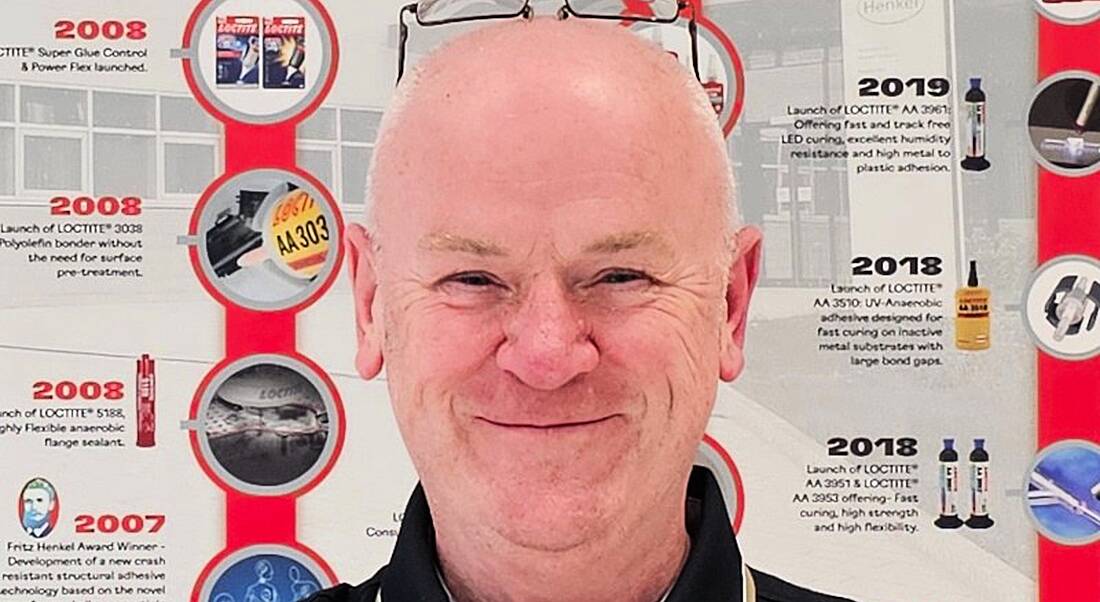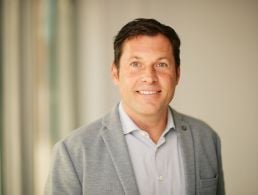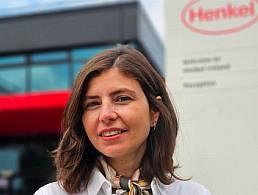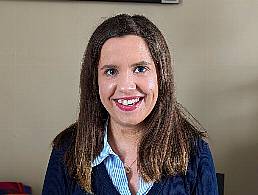Henkel’s Barry Burns discusses his role as technical lead for the Strategic Research Group and why every day is a ‘school day’ when working in research.
Barry Burns is the technical lead for the Strategic Research Group in Henkel’s R&D labs in Dublin.
After obtaining his PhD in organic chemistry from Queen’s University Belfast in 1992, Burns undertook postdoctoral research in various universities and institutes, including research into molecular recognition chemistry at Trinity College Dublin.
In 1996, he joined Henkel and in the 27 years that he’s been there, he has worked in different business units, but mostly in a technology development/research chemist role.
In his current role, he works with the Strategic Research Group – an early-stage technology research group with a focus on the development of new enabling technologies for key markets and applications relevant to one of Henkel Adhesive Technology’s major business units.
‘Every day is a school day’
What drew you to this career area?
The idea of combining my natural scientific curiosity with the potential for working with and providing innovative technology solutions to our customers is a very attractive and exciting career proposition. At Henkel, I get to work in an innovative and fulfilling environment that keeps me highly motivated.
I am currently responsible for the management and technical direction of a group that is working on delivering next-generation breakthrough technologies protected by a strong IP platform that will drive Henkel’s future business growth. My role allows me to engage and interact with a broad spectrum of people within Henkel, as well as with various academic research groups and start-up tech venture companies, both locally and internationally, who are working on the latest cutting-edge technologies.
What do you enjoy most about your job?
The thrill of applying my knowledge and experience in adhesive technologies to discover innovative technical solutions that offer our customers significant benefits. I also get to work on really exciting technology projects, for example, in the area of sustainable or smart polymers/nano materials that will respond to an external trigger in a controlled and measurable manner.
For example, materials that will self-heal when damaged and thus extend the usable shelf-life of the bonded assembly. We are also researching smart adhesives with designed-in triggers that will permit either ‘cure on demand’ or ‘debond on demand’, meaning adhesives that can be cured when needed by the customer, or depolymerised/lose adhesion under defined conditions to enable better recycling of bonded assemblies.
These are all innovative technologies aimed at driving more sustainable manufacturing and assembly processes for our customers, ultimately helping them to reduce their carbon footprint.
What’s the most exciting development you’ve witnessed in your sector since you started working in it?
The merging together of different technologies – chemistry, nanotechnology, physics, materials science, advanced materials fabrication techniques, digitialisation/IoT etc – that enable a multidisciplinary approach to new technological development. This is enabling an unprecedented level of sophistication in technology advancement.
What’s been the hardest thing you’ve had to face in your career, and how did you overcome it?
I am a pure synthetic organic chemist by training, but my job requires me to advance my knowledge and expertise in areas beyond my traditional comfort zone. Some of our current research projects require expertise and knowledge beyond the traditional adhesive chemistry and formulation approach and require me to develop my expertise in new technology areas involving physics/materials science and even a bit of electrical engineering!
Every day is a school day, so I am still learning – even after 27 years on the job! I try to overcome any knowledge gaps by connecting with relevant experts in Henkel, by training, reading patent/technical literature and not being afraid to ask people with superior expertise for help!
If you had the power to change anything within the STEM sector, what would that be?
To break down the learning/educational silos and develop a more multidisciplinary approach to science and technology education and development! Many of the technologies we are currently working on require a multidisciplinary approach involving chemistry, physics, materials science and mechanical/electrical engineering. The development of the advanced technologies of the future will benefit from having such a multidisciplinary skillset approach.
Which of your personality traits makes you best suited to your job and this sector?
My wife would say stubbornness. However, I prefer to think that I have a natural curiosity coupled with a strong determination to understand the technical question at hand!
Having strong determination in an advanced research job is important because the technology is at a very early stage of development and often not clearly understood – all the hard work that helps to enhance our understanding has yet to be done!
How do you make connections with others in the STEM community? Have you had any mentors that inspired you?
I have a good STEM community network within local universities, both in Ireland and beyond. I also make use of social media and all the tools that Henkel possesses, which enables me to find and reach out to the relevant experts!
My former manager was an excellent mentor who instilled in me a ‘give-it-a-go’ attitude and to seek out and use every tool and resource available to solve a problem.
What advice would you give to someone thinking about a career in your area?
My advice would be for them to absolutely go for it!
10 things you need to know direct to your inbox every weekday. Sign up for the Daily Brief, Silicon Republic’s digest of essential sci-tech news.




